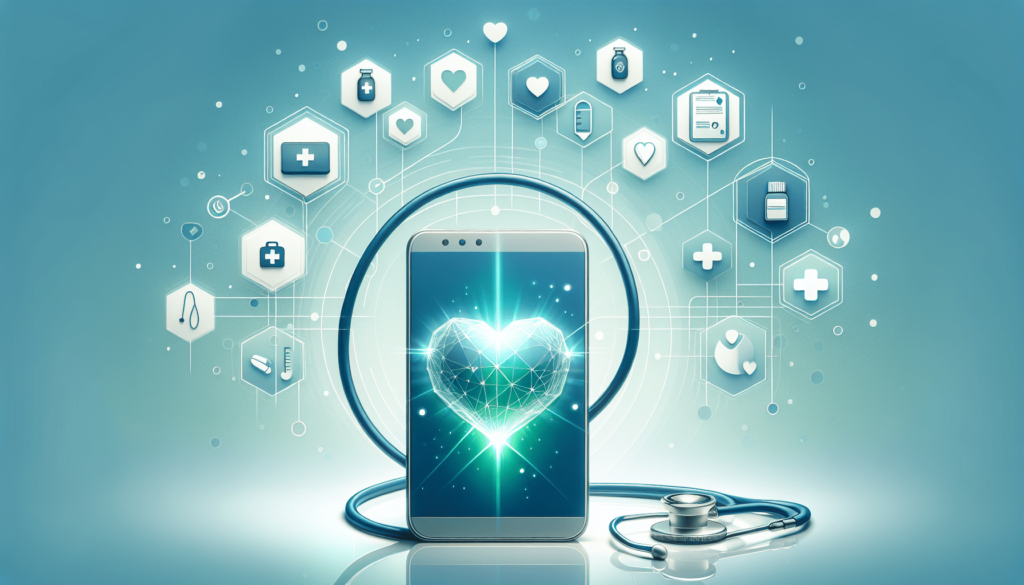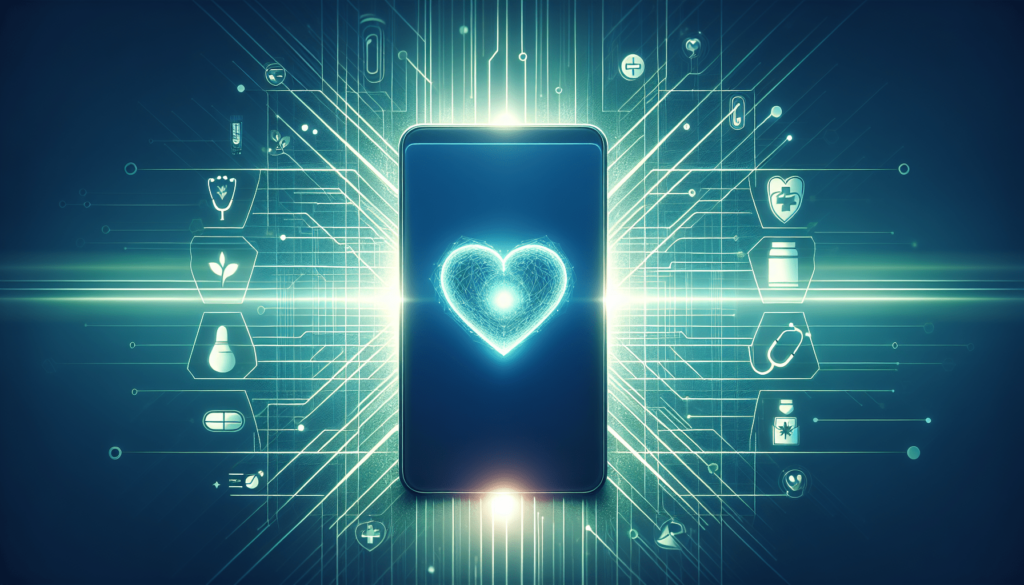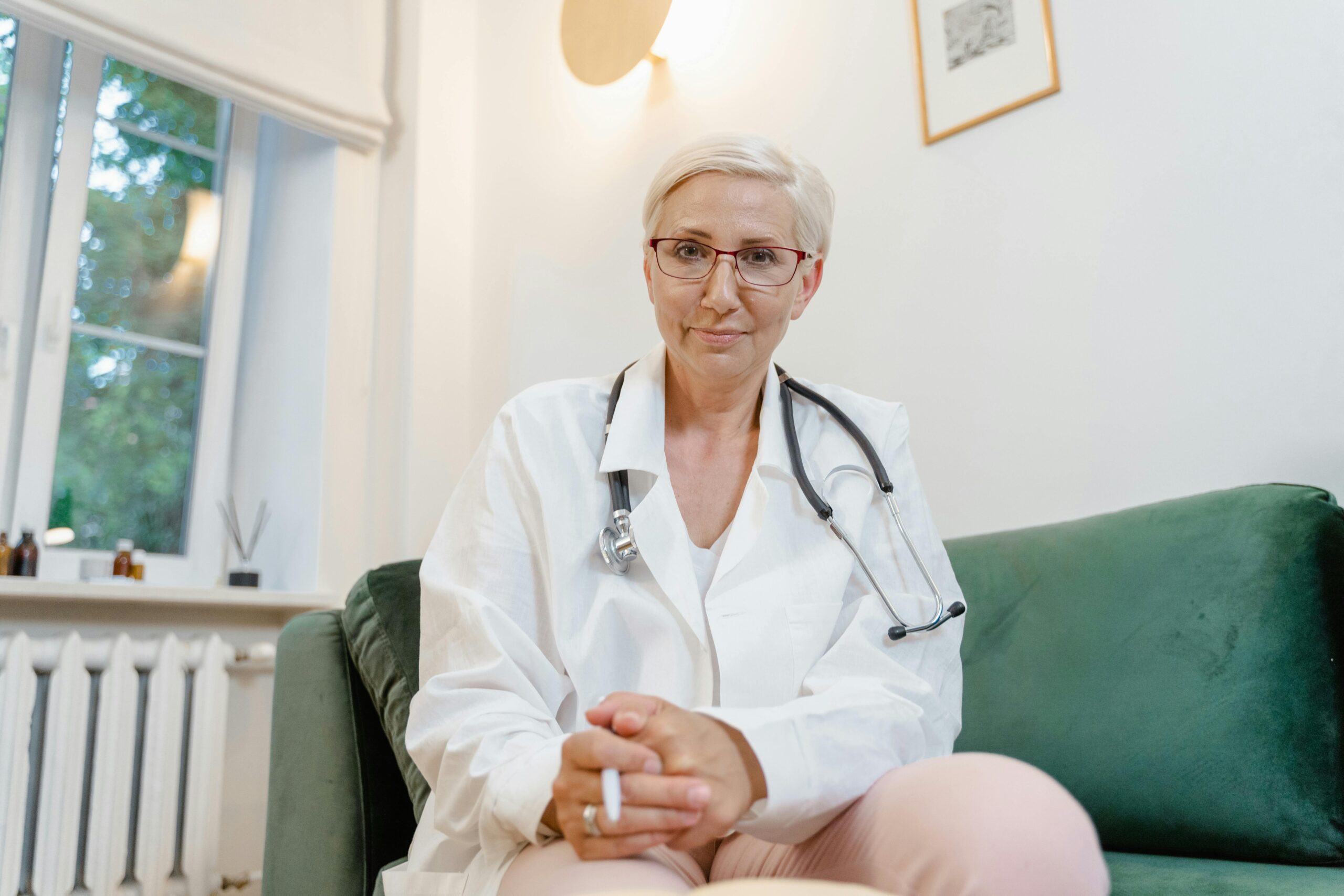Have you ever wondered how mobile technology is reshaping the way we approach our health? With smartphones becoming an integral part of our daily lives, there’s no surprise that mobile health (mHealth) is booming. From tracking fitness to managing chronic diseases, the latest trends in mobile health are both fascinating and revolutionary. Let’s dive into these trends and see how they can positively impact your well-being.

1. Fitness and Wellness Apps
So, you’re keen to keep track of your fitness goals but don’t know where to start? Fitness and wellness apps are your new best friends. These apps range from basic step counters to sophisticated platforms that monitor your sleep, stress levels, and even hydration.
Fitness Trackers
Fitness trackers like Fitbit and Garmin have become household names. They do more than count steps; they monitor your heart rate, sleep patterns, and even your stress levels. You get insights into your health journey and personalized recommendations. It’s like having a mini personal trainer in your pocket!
Wellness Apps
Wellness apps such as Headspace and Calm go beyond physical health to focus on mental well-being. Think guided meditation, breathing exercises, and sleep stories to help you unwind. You’re not just working on those abs; you’re sculpting a peaceful mind too.
2. Telemedicine
Would you believe me if I told you that doctor appointments are just a tap away? Telemedicine has transformed how we access healthcare services. You no longer need to sit in a waiting room full of outdated magazines.
Video Consultations
Apps like Teladoc and Doctor on Demand allow you to consult doctors and specialists via video calls. This is not just convenient but also essential for those in remote areas or with mobility issues. Suddenly, healthcare isn’t a hassle—it’s accessible right from your couch.
Prescription Services
Need a prescription? Apps like GoodRx provide discounts on medications, and some even deliver them to your doorstep. This is a game-changer for people with chronic illnesses who need regular refills.
| App | Service | Benefits |
|---|---|---|
| Teladoc | Video Consultations | Convenient, accessible, and immediate advice |
| GoodRx | Prescription Discounts and Delivery | Cost-effective and reliable medication deliveries |
| Doctor on Demand | Specialty Consultations | Access to a wide range of specialists |
3. Chronic Disease Management
Dealing with a chronic illness is hard enough, but management doesn’t have to be. Mobile health apps designed for chronic disease management are bursting through the seams with innovation.
Diabetes Management
Apps like MySugr and Glucose Buddy help monitor blood sugar levels, track your diet, and even predict your HbA1c levels. Real-time feedback can make all the difference in managing diabetes effectively.
Hypertension Control
Ever wondered how apps can help control blood pressure? Apps like Omron Connect allow you to track your blood pressure and share the data with your healthcare provider. You get to take control of your health like never before.
4. Personalized Health Recommendations
The age of one-size-fits-all healthcare is fading. Mobile health apps are now using AI to provide personalized health recommendations.
Artificial Intelligence in Healthcare
AI-driven apps like Ada and Your.MD analyze your symptoms and provide tailored health advice. They learn from every interaction, becoming smarter and more personalized. It’s like having an ever-evolving health assistant.
Genetic Insights
Have you ever heard of apps that give health recommendations based on your genes? Apps like 23andMe provide insights into your genetic predispositions and offer personalized health advice. Imagine knowing you might be at risk for something even before it becomes a problem!

5. Mental Health Support
Mental health is as important as physical health, and mobile apps are here to ensure you don’t neglect it. Mental health platforms are thriving, offering everything from therapy to community support.
Online Therapy
Platforms like BetterHelp and Talkspace offer online therapy sessions with licensed therapists. It’s never been easier to seek professional help discreetly and conveniently.
Peer Support
Apps like 7 Cups provide free, anonymous emotional support from trained volunteers. Sometimes, just talking to someone who listens can make all the difference.
6. Nutrition and Diet
Let’s face it—we all want to eat healthier but sticking to a diet can be challenging. Mobile apps make it easier by helping you plan and track what you eat.
Meal Planning
Apps like Mealime and Yummly offer meal planning services customized to your dietary preferences. They provide recipes, shopping lists, and nutritional information, making healthy eating simpler.
Calorie Tracking
Ever wonder how many calories are in that luscious cake slice you’re about to devour? Apps like MyFitnessPal and Lose It! help you track your daily calorie intake and understand your eating habits. You can make informed choices without the guesswork.
| App | Service | Benefits |
|---|---|---|
| Mealime | Meal Planning | Customized plans, recipes, and grocery lists |
| MyFitnessPal | Calorie Tracking | Detailed nutritional information and easy-to-use |
| Yummly | Recipe Search | Diverse recipes fitting various dietary needs |

7. Wearable Tech
Wearable technology has skyrocketed in popularity, and it’s not just about smartwatches anymore. These devices can do so much more, providing real-time health data that can be life-saving.
Smartwatches
Apple Watch and Samsung Galaxy Watch are leading the pack in smartwatches. These devices monitor your heart rate, detect falls, and even perform electrocardiograms (ECGs). Imagine a watch that could save your life!
Fitness Bands
Fitness bands like Fitbit Charge and Xiaomi Mi Band track your daily activities and sleep patterns. These affordable options bring health tracking to the masses, ensuring everyone can stay fit and informed.
8. Remote Monitoring
Remote patient monitoring is an innovation that allows healthcare providers to monitor patients from afar. It’s incredibly beneficial for managing chronic diseases, post-surgery recovery, and geriatric care.
Heart Monitoring Devices
Devices like AliveCor’s KardiaMobile allow you to perform an ECG from your smartphone, sending the results directly to your doctor. It’s a giant leap for managing heart conditions.
Connected Scales and Blood Pressure Monitors
Ever thought stepping on a scale could send your weight data to your healthcare provider? Connected devices like Withings Wi-Fi scales and Omron blood pressure monitors make this a reality. Your doctor gets real-time updates without you having to do anything.

9. Health Data Integration
With so many health apps out there, integrating data from multiple sources can be overwhelming. This is where integrative platforms come in, creating a unified health profile that’s easy to understand and manage.
Apple Health and Google Fit
These platforms pull data from various fitness apps, health records, and wearable devices to create a centralized health dashboard. It’s a one-stop shop for all your health information.
Health Records on Mobile
Apps like MyChart allow you to access your medical records, lab results, and appointment history right from your phone. No more rifling through papers or logging into multiple portals.
10. Emergency Response
During emergencies, prompt action is crucial. Mobile health technologies are stepping up to make sure you’re prepared in such scenarios.
Emergency Apps
Apps like ICE Medical Standard provide first responders with your critical health information, such as blood type and allergies, even when your phone is locked. This functionality can be a lifesaver.
Fall Detection
Devices with fall detection, like the Apple Watch, send alerts to emergency contacts if they detect a hard fall. They even call emergency services if no movement is detected after a fall.

11. Medical Research and Mobile Health
Mobile health apps are not just for tracking; they are also instrumental in medical research. These platforms collect invaluable data that can lead to groundbreaking discoveries.
ResearchKit and CareKit
Apple’s ResearchKit and CareKit frameworks allow researchers to conduct studies via mobile apps. Participants can enroll in studies remotely, providing a vast pool of data for researchers. This democratizes research participation, making it accessible to a broader audience.
Clinical Trials
Platforms like Medable make it easier for patients to join clinical trials. These apps handle consent, data collection, and follow-ups, improving the efficiency of trials and accelerating medical advancements.
12. Health Gamification
Let’s wrap this up with something fun—gamification in health apps. These apps turn health and fitness activities into engaging games to keep you motivated.
Fitness Challenges
Apps like Zombies, Run! and Strava incorporate challenges and social elements to make fitness fun. Who wouldn’t want to outrun a horde of zombies or compete in a virtual marathon?
Reward Systems
Some apps offer rewards for completing health activities. Platforms like Sweatcoin reward you with points that you can redeem for products and services. It’s fantastic to get something extra while working towards your health goals.
Conclusion
Mobile health trends are rapidly evolving, bringing healthcare to your fingertips and transforming the way you approach your well-being. From fitness tracking and telemedicine to personalized health recommendations and mental health support, these trends cover all aspects of health. Embrace these innovations and take charge of your health journey—because you deserve a healthier, happier life.
So, what’s next for you? Whether you’re looking to track your fitness, consult a doctor from home, or manage a chronic condition, there’s a mobile health app ready to make your life easier. Dive into these trends and find the tools that suit your health needs.
